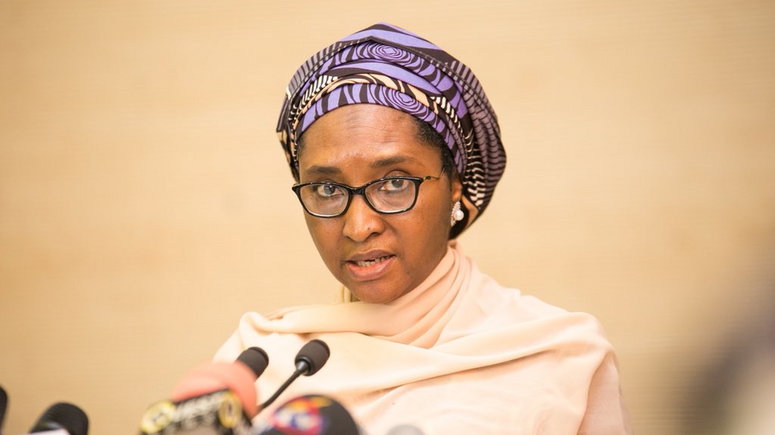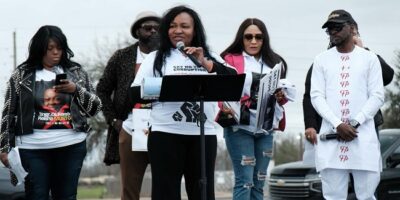Analysts Back FG’s Forecast Of Quick Exit From Recession

- World Bank predicts drop in nation’s per capita income to 40-year-low
Analysts yesterday described the Federal Government’s projection that the economy, which slipped into a recession in the third quarter of 2020, will recover latest by the first quarter of 2021 as realistic.
The analysts, in separate interviews with Flavision, supported the position of the Federal Government that the recession, fuelled by COVID-19, will be short-lived.
They were reacting to the Federal Government’s assurance yesterday that the technical recession induced by the COVID-19 pandemic will be temporary as the economy remained on the path of recovery despite the 3.62 per cent contraction in the third quarter of the year.
But despite the Federal Government’s assurance, the World Bank projected that Nigeria’s per capita income could fall this year to its lowest level in 40 years.
President Muhammadu Buhari also said as part of efforts to cushion the headwinds occasioned by the COVID-19-induced recession, the Federal Government has made provisions in the Finance Bill 2021 to exempt low-income earners from paying income tax.
He justified the federal government’s move to reduce import duty on vehicles, stressing that this will reduce the cost of transportation.
In her opening remarks at the ongoing 26th Nigerian Economic Summit (#NES26) in Abuja, the Minister of Finance, Budget and National Planning, Mrs. Zainab Ahmed, said the economy remained on the path of recovery, adding that the third quarter 2020 performance has shown that the government’s response to the pandemic has positive outcomes when compared with the 6.10 per cent contraction in the preceding quarter.
The minister projected that the country will exit recession by the first quarter of 2021.
She committed the federal government to implement the Nigerian Economic Sustainability Plan (NESP) launched to boost economic recovery amidst the impact of the COVID-19 pandemic.
She said 18 economic activities recorded positive growth in Q3 compared to 13 activities in the preceding quarter, further boosting expectations for a quicker recovery.
The minister said the Buhari administration is aware of current economic challenges faced by Nigerians and is working to reverse the trend and return the economy on the path of sustainable growth.
Ahmed said Nigeria was not the only country whose economy contracted as the recession followed a pattern among world economies, which also suffered the same fate.
Ahmed explained that the economy was improving before the pandemic aggravated its crisis, adding that the Q3 GDP results out-classed other key economies, including South Africa’s, which witnessed deeper contraction.
She said though it took the country about five months to exit 2016 recession, the current downturn may last only a month.
She said:
Let me remind us that before the impact of COVID-19, the Nigerian economy was experiencing sustained growth, which had been improving quarter-by-quarter until the second quarter of 2020, when the impact of the COVID-19 was felt,
she said.
Ahmed stated that other countries also in recession, including the United Kingdom and the United States recorded much deeper contraction than that of Nigeria.
Nigeria is not alone in this, but I will say that Nigeria has outperformed all of these economies in terms of the record of negative growth,
she said.
According to her, South Africa, which recorded a decline of -50 per cent compared to Nigeria’s -6.1 per cent in Q2, will also record a deeper negative growth in Q3.
Ahmed said: “While the economy has entered into recession in the third quarter, the trend of the growth suggests that this will be a short-lived recession, and indeed by the fourth or, at worst, the first quarter of 2021, the country will exit recession.
Our expectation of a quick exit, which will be historically fast, is anchored on the several complementary fiscal, real sector and monetary interventions that have been proactively introduced by the government to forestall a far worse decline of the economy and alleviate the negative consequences of the pandemic.
The minister added that the government has taken hard decisions at a difficult time, in the interest of the public, and urged Nigerians to encourage policy makers to do more.
She, however, said collaboration was key to returning the economy on the path of recovery.
Since the inception of NESG 25 years ago, it has become one of the largest annual gatherings dedicated to finding solutions to the challenges facing the Nigerian economy.
It has helped to shape government policies, reforms and sector transformation. Despite the recession, Nigeria has out-performed many economies in terms of economic growth.
Some economic activities also demonstrated strong resilience. They include production, telecommunications, financial institutions, food and beverage manufacturing, construction services, public administration, and courier services,
she stated.
Analysts Back FG’s Projection on Economic Recovery
Reacting to the federal government’s forecast, an economist and associate professor at the Lagos Business School, Dr. Bongo Adi, said:
I think the recession was not because of anything they did or anything they failed to do. Anybody would see that the economy has been pretty much on autopilot. It was caused by the international oil price movement.
However, the economy was recovering before COVID-19. By the end of next quarter or at most by Q2, we would be back to the growth path. The protest contributed as well.
If businesses continue as they are today, we would definitely coast out of the recession.
Also, Head of Research at United Capital, Mr. Wale Olusi, agreed that the recession will not be prolonged.
He said:
If you look at the trend, in Q2, we contracted by six per cent and in Q3 that negative has reduced to 3.6 per cent, which is almost 40 to 45 per cent improvement in terms of the rate of growth.
If that trend continues, and now that the economy has been opened and in Q4, oil prices are showing some signs of improvement because of the vaccine that has been discovered and there is going to be December activity by Q4.
What I suspect is that negative would probably reduce to one per cent or slightly below zero per cent by Q4. And if you are able to sustain that trend by Q1, you are most likely to see the negative growth turn to positive although very soft at maybe 0.5 or 0.8 per cent positive growth by Q1.
Senior Economist/Head, Research & Strategy, Greenwich Merchant Bank, Mr. Ayodeji Ebo, predicted that the GDP will return to a growth path by Q1.
Ebo said:
It would be a major miracle to escape a negative growth rate in Q4 and we are already in November with no major policy that would take us out to that positive region within one month.
But based on what we have seen so far, which is almost two-third of the quarter, I feel that we can’t escape the negative growth rate, but it may be mild. But if we are hoping for a positive growth rate, it should be in the first quarter of 2021 because there are some policies that need to be put in place.
The trade policy, FX liquidity is still a major challenge for most people to import, in the manufacturing space there is really no major policy that is helping bring down the cost of doing business. I feel that it sounds optimistic, but we expect Nigeria to move to positive growth rate by Q1.
Finance Bill Exempts Minimum Wage Earners from Income Tax, Says Buhari
In his speech at the economic summit, Buhari said his administration through the Finance Bill 2021, proposed to exempt minimum wage earners from the Personal Income Tax (PIT) to further cushion the impact of inflation on Nigerians.
He said:
We are proposing in the new Finance Act that those who earn minimum wage should be exempted from paying income tax.
These provisions, which complement the tax breaks given to small businesses last year, will not only further stimulate the economy but are also a fulfilment of promises made to take steps to help reduce the cost of transportation and the impact of inflation on ordinary Nigerians.
Expanding on the role of the private sector in building a resilient economy, Buhari, represented by Vice President Yemi Osinbajo, who joined the summit via video conferencing, said the private sector has a key role to play in government’s efforts to build a more resilient and competitive economy as expressed in the Economic Recovery and Growth Plan (ERGP).
He said:
Private companies in design, construction, logistics and finance are very much engaged in our infrastructural projects in power and rail as well as road and bridges and the installation of broadband infrastructure, which is an essential requirement if Nigeria is to participate actively and benefit from the 4th Industrial Revolution.
It is clear that we must diversify the economy away from dependence on crude oil exports, speed up human capital development and improve on infrastructure. Above all, our economy must be made more resilient to exogenous shocks. It is important for the private sector to play a key role as we work together to identify national priorities and try to influence our future national trajectory.
The president also gave insights to the collaboration between the Central Bank of Nigeria (CBN), the Nigerian Sovereign Wealth Investment Authority (NSIA) and other stakeholders in the creation of an Infrastructure Company (Infraco) Fund to address some of the nation’s critical infrastructure needs.
According to him, partnerships remain essential to attract the resources for building a solid national infrastructural base.
He said the government is working actively with the CBN, Nigerian Sovereign Investment Authority and state governments under the auspices of the National Economic Council to design and put in place a N15 trillion Infraco Fund, which will be independently managed.
On revamping the economy, Buhari said: “Our national journey to economic prosperity is a long one, so we must all certainly work together. As we saw, partnerships were essential when we were faced with the serious challenge of combatting COVID-19.
We saw the key role that partnerships played in our national effort to combat the COVID-19 crisis. While the federal and state governments worked together to manage the health response and ensure the establishment of isolation centres and availability of test kits, personal protective equipment, and medicines, the private sector also played an active role as individual entities, and also worked together in groups like the Coalition Against COVID-19.
The president also justified the federal government’s move to reduce import duty on vehicles, saying that it will
reduce the cost of transportation by reducing the cost of vehicles.
He said in the wake of the recent subsidy removal and an increase in fuel price as well as the pass-through effects on food prices, transportation costs would have to be reduced to bring some reliefs to Nigerians.
Citing the need to cushion the socio-economic impact of the COVID-19 pandemic, the administration had proposed additional tax incentives in 2020 Finance Bill, including reduction of import duty and levies on transportation vehicles, tractors among others from 35 per cent to 10 per cent.
But some local investors have criticised the move, describing it as a deviation from the objectives of the auto industry roadmap, adding that it could discourage foreign investors because of the seeming policy somersault.
The president, however, said that the cut on vehicles import duty would energise other sectors of the economy that were depressed on an account of high transportation.
According to him, the federal government’s decision should not be seen as going against the country’s auto industry policy because even with the proposed slash, there is still relatively 40 per cent levy on cars.
Buhari explained that the automotive policy is directed at localising production of vehicles.
He said the annual demand for vehicles was about 720,000 vehicles per year while actual local production by the assembly plants currently stood at about 14,000 vehicles a year.
The Chairman of the Board of the NESG, Mr. Asue Ighodalo, said Nigeria is missing out on the $19 trillion invested in negative-yielding assets globally because the country’s investment climate is seen as
unwelcoming, unsafe, and unpredictable.
Ighodalo stated that for a country in desperate need of development momentum and capital, the events of last month, including the #EndSARS protests, the debilitating riots, and all of the issues that emerged, were bad for morale, confidence, and business.
Ighodalo said though the pandemic had slowed progress on many fronts, this should not be an excuse not to pursue economic recovery growth.
World Bank Projects Drop in Nigeria’s Per Capita Income to 40-year-low
However, despite the Federal Government’s optimism, the World Bank has said Nigeria’s per capita income could fall to its lowest level in 40 years this year.
The Country Director for Nigeria, Mr. Shubham Chaudhuri, said at the NESG conference that the decline in crude oil prices had impacted government finances, the balance of payments and remittances from Nigerians living abroad.
Per capita income is a measure of the amount of money earned per person in a nation or geographic region.
It is calculated by dividing the country’s national income by its population.
Chaudhuri, who spoke during a panel session, noted that the country was still recovering from the last oil price shock of 2014-2016 before the COVID-19 crisis hit the economy.
The fact of the matter is that recovery was there but it was slow; it was only gathering pace,
he said.
Chaudhuri stated that between 2015 and 2019, a total of 15 million young Nigerians became of working age but only about four million really found the kinds of jobs and opportunities they aspired for.
Crisis like this is often what it takes to bring a nation together to have that consensus within the political, business, government, military, civil society to say, ‘We have to do something that departs from business as usual.
And for Nigeria, this is a critical juncture. With the contraction in GDP that could happen this year, Nigeria’s per capita income could be around what it was in 1980 – four decades ago,
he added.
World Bank data showed that Nigeria’s per capita income, which stood at $2,229.9 in 2019, was around $847.40 in 1980.
It hit a record high of $3,222.69 in 2014 but slumped to $1,968.56 in 2017.
This is absolutely a critical juncture and I am very hopeful that given what the government has done, that this crisis will also provide an opportunity for that national consensus,
Chaudhuri stated.

Justin Nwosu is the founder and publisher of Flavision. His core interest is in writing unbiased news about Nigeria in particular and Africa in general. He’s a strong adherent of investigative journalism, with a bent on exposing corruption, abuse of power and societal ills.













